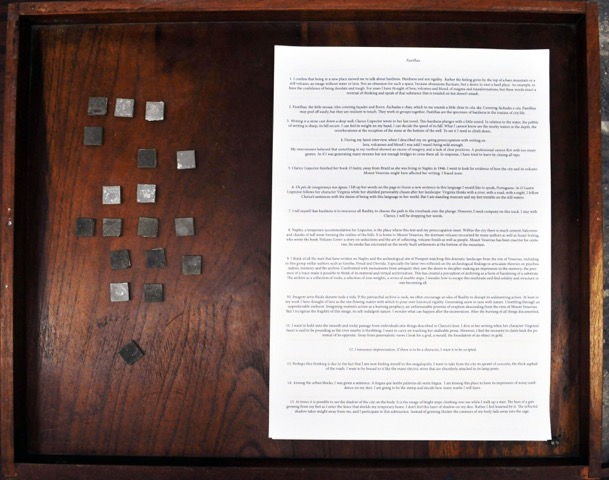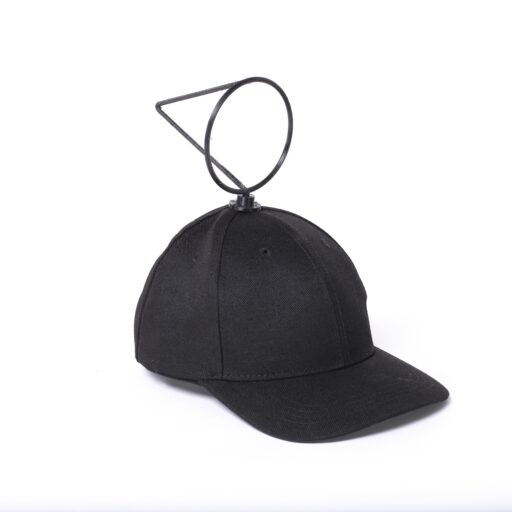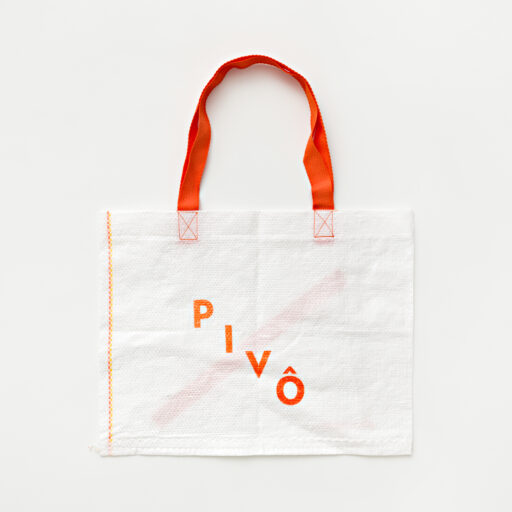
Pastilhas
- I confess that being in a new place moved me to talk about hardness. Hardness and not rigidity. Rather the feeling given by the top of a bare mountain or a still volcano, an image without water or lava. Not an obsession for such a space, because obsessions fluctuate, but a desire to own a hard place. An example, to have the confidence of being desolate and tough. For years I have thought of lava, volcanos and blood, of magma and transformations, but these words enact a reversal of thinking and speak of that substance that is treaded on but doesn’t smash.
- Pastilhas: the little mosaic tiles covering façades and floors. Fachadas e chão, which to me sounds a little close to céu, sky. Covering fachadas e céu. Pastilhas may peel off easily, but they are resilient to touch. They work in groups together. Pastilhas are the specimen of hardness in the routine of city life.
- Writing is a stone cast down a deep well, Clarice Lispector wrote in her last novel. This hardness plunges with a little sound. In relation to the water, the pebble of writing is sharp, its fall secure. I can feel its weight on my hand, I can decide the speed of its fall. What I cannot know are the murky waters in the depth, the reverberations at the reception of the stone at the bottom of the well. To see it I need to climb down.
- During my latest interview, when I described my on-going preoccupation with writing on
lava, volcanoes and blood I was told I wasn’t being wild enough.
My interviewers believed that something in my method showed an excess of imagery, and a lack of clear positions. A professional cannot flirt with too many genres. As if I was generating many streams but not enough bridges to cross them all. In response, I have tried to learn by closing all taps.
- Clarice Lispector finished her book O lustre, away from Brazil as she was living in Naples in 1946. I went to look for evidence of how the city and its volcano Mount Vesuvius might have affected her writing. I found none.
- Os pés de insegurança nas águas. I lift up her words on the page to freeze a new sentence in this language I would like to speak, Portuguese. In O Lustre Lispector follows her character Virginia while her shielded personality chases after her landscape: Virginia thinks with a river, with a road, with a night. I follow Clarice’s sentences with the desire of being with this language in her world. But I am standing insecure and my feet tremble on the still waters.
- I tell myself that hardness is to renounce all fluidity, to choose the path to the riverbank over the plunge. However, I need company on this track. I stay with Clarice, I will be dropping her words.
- Naples, a temporary accommodation for Lispector, is the place where this text and my preoccupation meet. Within the city there is much cement, balconies and chunks of tuff stone forming the outline of the hills. It is home to Mount Vesuvius, the dormant volcano recounted by many authors as well as Susan Sontag, who wrote the book Volcano Lover: a story on seductions and the art of collecting, volcano fossils as well as people. Mount Vesuvius has been inactive for centuries. Its smoke has encrusted on the newly-built settlements at the bottom of the mountain.
- I think of all the men that have written on Naples and the archeological site of Pompeii watching this dramatic landscape from the rim of Vesuvius, including in this group stellar authors such as Goethe, Freud and Derrida. Especially the latter two reflected on the archeological findings to articulate theories on psychoanalysis, memory and the archive. Confronted with monuments from antiquity they saw the desire to decipher making an impression in the memory; the presence of a trace made it possible to think of its material and virtual archivization. This has created a perception of archiving as a form of hardening of a substrate. The archive as a collection of rocks, a selection of iron weights, a series of marble steps. I wonder how to escape this multitude and find solidity and structure in one becoming all.
- Imagem seria fluida durante toda a vida. If the patriarchal archive is rock, we often encourage an idea of fluidity to disrupt its sedimenting action. At least in my work I have thought of lava as the one flowing matter with which to pour over historical rigidity. Generating anew in tune with nature. Unsettling through an unpredictable outburst. Imagining women’s action as a burning prophecy, an unforeseeable promise of eruption descending from the rims of Mount Vesuvius. But I recognise the fragility of this image, its self-indulgent nature. I wonder what can happen after the incineration. After the burning of all things documented.
- I want to hold onto the smooth and rocky passage from individuals into things described in Clarice’s lines. I dive in her writing when her character Virginia’s heart is said to be pounding as the river nearby is throbbing. I want to carry on touching her malleable prose. However, I feel the necessity to claim back the potential of its opposite. Away from paternalistic views I look for a grid, a mould, the foundation of an object in gold.
- I renounce improvisation. If there is to be a character, I want it to be scripted.
- Perhaps this thinking is due to the fact that I am now finding myself in this megalopolis. I want to take from the city its sprawl of concrete, the thick asphalt of the roads. I want to be bound to it like the many electric wires that are disorderly attached to its lamp posts.
- Among the urban blocks, I was given a sentence: A lingua que lambe palavras de outra lingua. I am kissing this place to have its impression of noisy confidence on my skin. I am going to be the stamp and decide how many marks I will leave.
- At times it is possible to see the shadow of the city on the body. It is the image of bright steps climbing over me while I walk up a stair. The bars of a gate growing from my feet as I enter the fence that shields my temporary home. I don’t feel this layer of shadow on my skin. Rather I feel lessened by it. The reflected shadow takes weight away from me, and I participate in this subtraction. Instead of growing thicker the contours of my body fade away into the cage.
- There is a phrase in Italian that says “avere la pelle dura”. To have a hard skin, meaning to be invulnerable to strenuous circumstances. To be able to go through them, unharmed. To be tough. As if there were different categories of skin according to its softness. How would you describe yours? In this case, I cannot tell if bruises and scars would be a mark of being hard or soft. If they accumulate on the body or if they engender cracks into its surface.
- I want to create a performance of stiffness over time. Going from the top layer into the joints. When my muscles become tense to recover strength and make this energy visible to my opponent my body is pervaded by a vibrating adrenaline. Letting it go is harmful. There is pain in being relaxed. I want the joy of the electrifying performance. I plan to make a systematic use of adrenaline. I work to figure out a way to equally distribute it throughout encounters and situations.
- I plan to prolong the feeling of a firm chest. To make it secure as a bow ready to shoot the arrow. Shoulders will be pulling back while the neck will be stretched further. Arms will be resting on each side and the palms of the hands will be proud and happy. This will be my passionate response to the interviewers of the future.
- A different form of hardness takes place in repetition. Moving away from the skin repetition sets into motion the weight of the body, whether perceived on the outside or the inside. Whether weight is felt or looked at. Hardness seems to be more compatible with long duration rather than shortness. Hardness lasts a long time. Hardness is bound to the earth. Thinking through the bones of the body, repetition makes the skeleton feel heavier and harder.
- Body-working at the gym expands and stiffs the muscles. Alar Gomes’s photographs portraying men exercising on the beach at Ipanema show the perceived masculinity of a certain kind of gesture. The ideal man is flexing his muscles. The geometries formed by the body are set in contrast with the impotent bleached beach. Thinking of this image, I am left with a question: Que é a natureza?
- In Herta Müller’s novel The Land of the Green Plums the hardness of repetition is what makes the protagonists aware of the subjugation of their bodies under a dictatorship. In the moment when a group of young people are expected to vote against one of their comrades by raising their hands everyone is willing to make her total support visible. No one wants to be the first to put her hand back down. Fingers stretch a bit longer and grow heavier and tired. The dictatorship is felt heavy on the body. But coming to feel this weight, this hardness, means being able to recognise it. It means the chance to push back.
- Em um profundo cansaço. Lava, volcanos and blood was the title of an article written by the feminist artist and philosopher Lina Mangiacare in the seventies. I have been getting to know her archive in Naples for over four years. Lina believed that women’s creativity would have crashed men’s oppression. The relation with nature, with the dramatic shapes the landscape of Naples takes, would have nourished women’s agenda. It would have made their skin grow thicker. But I walk in profound tiredness as I receive her words in her city.
- I am taken by the sharp loudness of the streets. In the city I am dragged down by the exhaust fumes of the cars. In the outskirts by the fumes of the little craters of a much larger volcano. The craters are so many and so scattered to cover fields of water and much earth.
- Eventually I confess that the hardness of the archive I want to keep is the impact on my own being. Not the tiredness of absorbing and identifying with the archive, but its slow crystallisation in my identity.
- If this is a performance of the archive from Naples in São Paulo I want you to see through it. I want you to think of hardness as a consequence without a definite cause. I want you to recollect the different elements of this story and play with them. I want the effects to keep alive. The origin of these ideas disappear behind the use you can make of them. Take this and craft your own hardness in the city. The lava from the volcano solidifies and awaits right around the corner. Forgetting this beginning, there are free forms falling anew.
- Algumas coisas não poderiam existir exceto sob intensa atenção; olhando com uma severidade e dureza que a fazia não buscar a causa das coisas, mas a própria coisa.
- A volcano bomb is when fragments of fluid lava cool down into solid pieces before reaching the ground. Lava takes the form of different rocks. By leaving the volcano and changing temperature, lava is shaped in flight and can land kilometres away from its origin. At times these threatening objects get collected in museums around the world, perhaps in an attempt to make them inoffensive, to neutralise them.
- Imagining this storm of stones I am reminded of the story on the pastilhas flaking off the walls of Edíficio Copan in São Paulo. I enjoy this potential of pastilhas to become as dangerous as flying rocks. It’s raining pastilhas. It seems that especially during windy days pastilhas would fall down on the roads, sometimes harming people and animals passing by. Pastilhas are powerful triggers of imagination and overtime I have encountered many pastilhas’ messengers, my informants on pastilhas who have mediated their message for me.
- I enjoy how friends who brought up these stories described Edíficio Copan as a living creature, acting from an intention of its own. I see the pastilhas gaining weight and hardness in flight. I see them as consequences enacting their own origin.
- The definition of hardness in the dictionary provides many different meanings to this word, but I can recognise myself in none. Hardness is compared to harshness, lack of empathy, difficulty and lack of weaknesses, but is it possible to queer the perception of this term?
- Always starting from something small. From a particle of the everyday, a nearly invisible detail. Recognising its presence in yourself, feeling its weight and attachment to it as you reach out to grab it. Observing it as it grows. Get ready to throw it out, like an unpredictable rainfall.
- Like the flight of the urubu, the volture, descending down into the city.

 Português
Português
